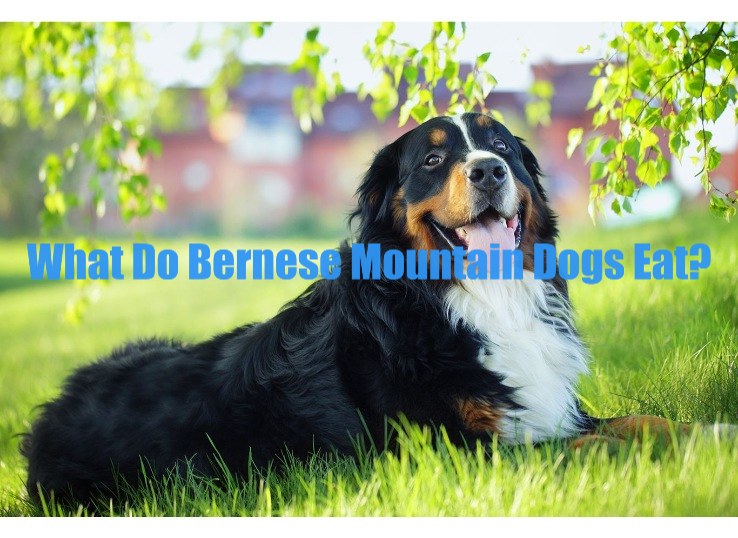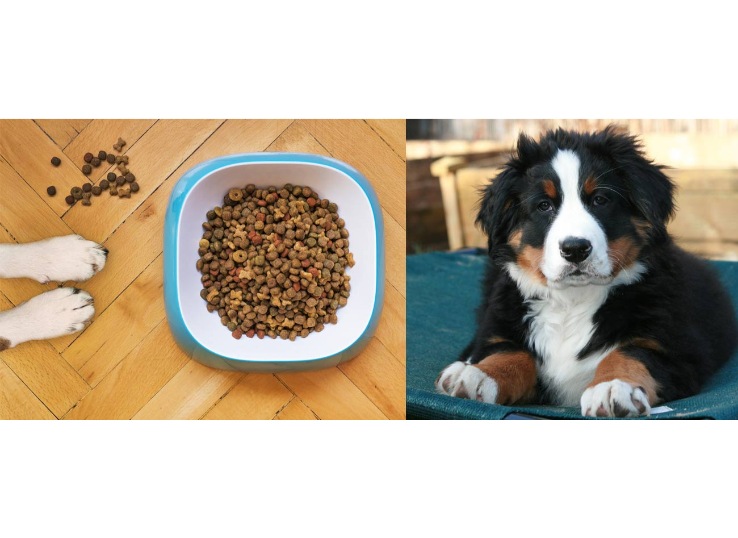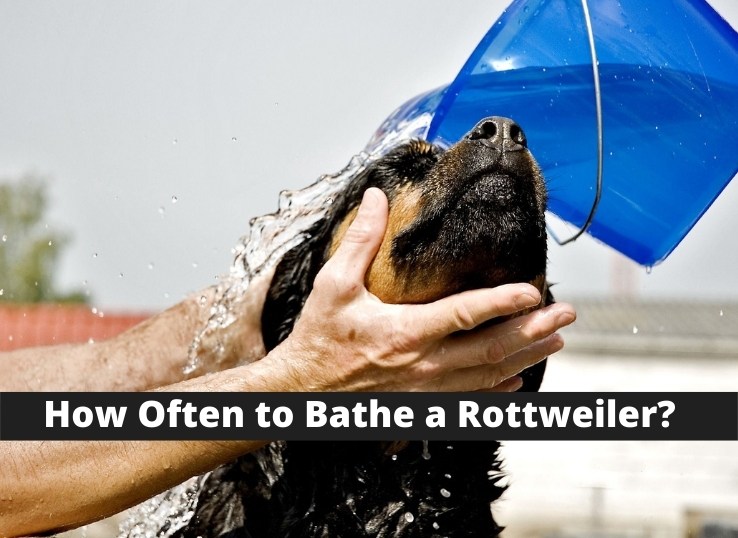What Do Bernese Mountain Dogs Eat? (New Guide)

A well-balanced diet delivers quality nutrition and keeps the cells, body tissues, and organs fit consecutively. This allows a Berner’s immune system to be in good condition to combat any invaders. Besides, the food you feed your Berner helps your dog to stay fit, or it can lead to issues with ears, skin, and overall health. So, this article will explain what do Bernese mountain dogs eat. Continue reading this guide to know more.
Table of Contents
What do Bernese mountain dogs eat, and how to select the right food for your Berner?
Your dog’s breeder must suggest a diet for your canine. Your dog’s breeder knows about choosing a particular diet that has confirmed to fulfill the nutritional requirements of dogs from the groups from which your dog comes. Additionally, veterinary advice on selecting food can be useful, particularly if your dog gets short or long-standing health problems related to digestion.
Bernese mountain dog owners give several foods, from raw and home-based diets to commercially made kibble. Berner owners look to approve feeding a high-quality diet with comparatively low protein concentration, around 18 to 26%, and good fat content, below 16%.
High protein or fat feeds (> 28%, >16%) might be ‘too much for several Bernese, particularly dogs that are not very energetic working/performance canines. High protein feed has precipitated hotspot occurrences in some mountain dogs. A diet affluent in fat adds surplus pounds and, in numerous cases, leads to diarrhea.
Tips for feeding Bernese mountain dogs
Besides, your Berner might have particular likings – canine loves carrots, beans, and apples; however, not so loving of additional fresh foods. Preferences are standard. Before boarding on feeding raw food, read books on dog nutrition.
Request others who have been effectively handling their dog(s) while feeding raw diet how to keep on. Knowing how to balance a raw diet needs research and a strong opinion of the dog’s reaction to consuming raw foods. Selecting the most helpful food sources can be interesting.
About kibble
For optimum development and upkeep joined with the least food preparation time, several Bernese owners select to feed a good quality prepared food. The inexpensive food accessible in the local market or pet store is not the best option for your Bernese mountain dog puppies. Several commercially made kibble as well as canned food have human-grade constituents and utilize vitamins C and E as stabilizers rather than BHT, BHA, or ethoxyquin. These additives can create allergic reactions in some Bernese mountain dogs. Protein sources in kibble and canned foods generally come mainly from meats, eggs, and grains. Several Bernese mountain dog puppy owners like to use foods with meat sources mentioned first in the feed constituents list on the bag.
Feeding-exercise
Regulate your Bernese mountain puppy’s play timetable or adult’s actions so effort and exercise will happen at a minimum of one to two hours after mealtime. Besides, a puppy or dog that is energetic or exercised with a stomach full of food could encounter bloat or gastrointestinal torsion; likewise, if your dog has been exercising, permit for a cool down of 30 minutes and 60 minutes or so prior to feeding.
How much to feed a Bernese mountain dog?

Food consumption will increase gradually as your Bernese mountain dog puppy grows. Generally, healthy puppies from 8n to 10 weeks of age consume approximately 3/4 – 1 and a half cups of food each meal.
Generally, young Bernese mountain dog puppies are given 3 meals between two to six months. After six months, give the dog 2 meals each day. The quantity of food a Bernese mountain dog puppy requires to uphold a good body state will differ based on the individual metabolic rate and activity level.
Healthy Bernese mountain dogs will consume 3 to 6 cups of high-quality food daily. A 4-month-old Bernese mountain dog puppy will eat above an eight-week-old Berner. At 6 to 8 months, the food consumption will generally be at an adult level or slightly higher based on the dog’s surroundings as well as the system.
Recommendations
Most breeders feed pups in a litter from 1-2 large common food dishes. Having a puppy to consume from his own dish, with no rivalry from litter mates, can show minor experiments. Some pups are easily diverted and may stroll away prior to finishing. An easily diverted pup that needs to move into other litter mats’ food bowls can be restrained to a crate or another area throughout feeding times.
Picky eating behaviors are frequently learned and might be due to poor supervision or an owner making an inappropriate selection of feed for a specific dog. Several puppies do their best with prearranged regular feeding times. Any unconsumed food is collected and stored carefully until the following meal.
FAQs
Q: What do Berners like?
Berners require at least 30 minutes of sensible exercise daily to stay healthy. Usually, they enjoy outdoor deeds and make great friends on walks or hikes.
Q: Do Berners have sensitive stomachs?
The Bernese mountain dogs are predisposed to digestive problems and sensitive stomachs, so you must give them an easily consumable diet.
Conclusion
Resource protecting, meaning canines that growl, become local, or openly aggressive once the food is removed or once a person comes nearby while the dog is consuming, must not be allowed to develop. Train your pup to be relaxed by putting your hand in the puppy’s food dish. Children must be taught to leave a Berner alone when it is consuming. Teaching your Bernese mountain dog to remain peaceful during an intrusion though eating is particularly significant if you have kids. If your Bernese puppy has resource-protecting tendencies, check an expert veterinary trainer.
References
http://www.bmdinfo.org/bernerpedia/Dog_Food_Feeding_Berner_Puppies_and_adults.php
https://mountainbernese.com/how-much-to-feed-a-bernese-mountain-dog-puppy/ (Berners)






